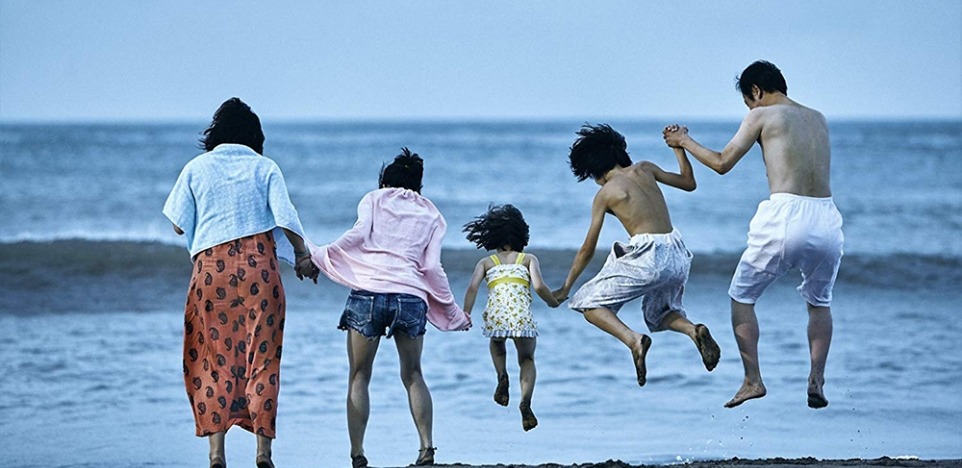We are huge fans of Japanese director Hirokazu Kore-eda's films; they always touch our hearts with their quirky characters and respect for the manifold mysteries of life. We were moved by Maborosi, a profound film about one woman's long and arduous journey through grief's labyrinth. Next was After Life, an exquisite drama about individuals choosing the best days of life. Nobody Knows told the harrowing story of four children in Tokyo who are abandoned by their mother and forced to fend for themselves. In Still Walking, the director turned his attention to a Japanese family get-together to explore sibling rivalry, the yearning to be wanted, and the mysteries of death. I Wish was a charming and inventive drama about wishes, questing, friendship, sibling solidarity, and the wonderful support of grandparents when we need them the most.
Perhaps the film most similar thematically to Shoplifters is Like Father, Like Son, in which Kore-eda explored the slow and surprising transformation of a self-absorbed and distant father who comes to see how important it is for both children and parents to be loved and appreciated. This sensitive director has a gift for exploring the ups and downs and ins and outs of family life.
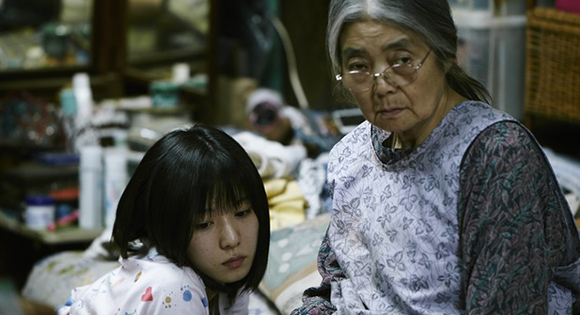
Osamu Shibata (Lily Franky) lives with his wife Nobuyo (Sakura Ando) in a ramshackle Japanese bungalow with Shota (Jyo Kairi), a pre-teen boy. a college-aged young woman Aki (Mayu Matsuoka), and Grandmother (Kirin Kiki). This makeshift family is not bonded to each other by blood but by the ancient virtues of respect, kindness, empathy, and compassion.
The Shibatas have improvised their living situation. The apartment is rented to Grandmother, and her pension pays for other expenses as well. Osamu works on a construction site, Nobuyo has a job in an industrial laundry, and Aki performs strip teases for an Internet site. Still, they can't make ends meet without daily shoplifting excursions by Shota and Osamu. When they hear of a new program called "workshare" where workers are expected to alternate one-half day shifts, Osamu observes that "everyone gets a bit poorer every day."
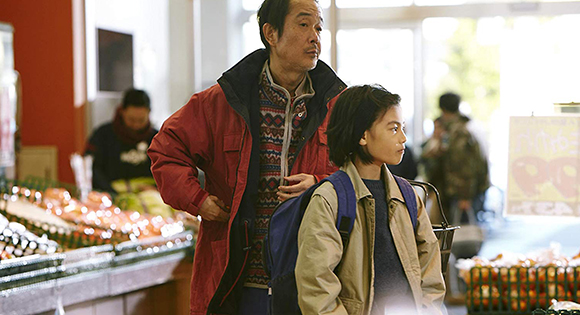
One cold day, they come across a sickly little girl (Miyu Sasaki) and bring her back to their place. After seeing that she carries cuts and wounds on her body, and overhearing outside her house that her parents never wanted her, they decide she is better off with them. The little girl quickly warms to the others and soon is calling Shota "Brother" and enjoying the care and hugs from Grandmother and Nobuyo.
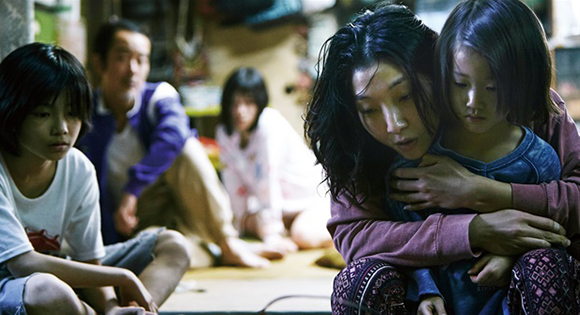
Every human being has the capacity for kindness, and it is up to the grown-ups in their lives to provide the milieu that brings out the best in children. We see this happening as the family shares meals, watches fireworks, and frolics in the ocean at the beach. "Sometimes it's better to choose your own family," one of them observes. They become like the fish in the book Shota is reading, Swimmy by Leo Lionni. The little fish are threatened by a big bad tuna, until they learn to swim together in the shape of a fish — their chosen family — and scare their troubles away.
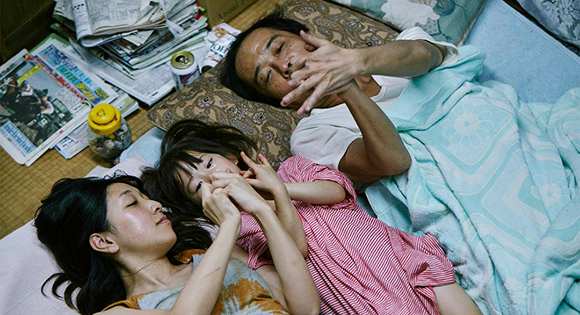
Kore-eda's Shoplifting encourages our empathy for others, our outrage at the injustice brought on my economic inequality, and our awareness of the vulnerability of those forced to exist on the outskirts of society. Most of all, it shows us the value of family in the nurturing of young and old alike.
This Japanese film is one of the Most Spiritually Literate Films of 2018.
